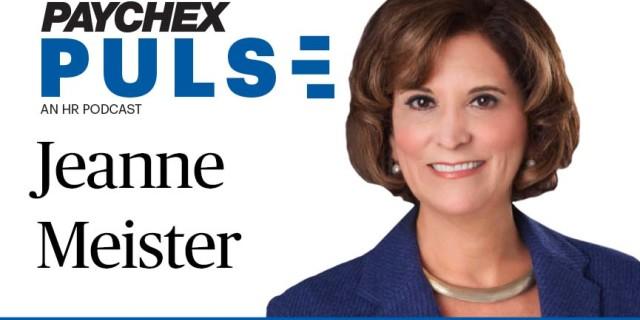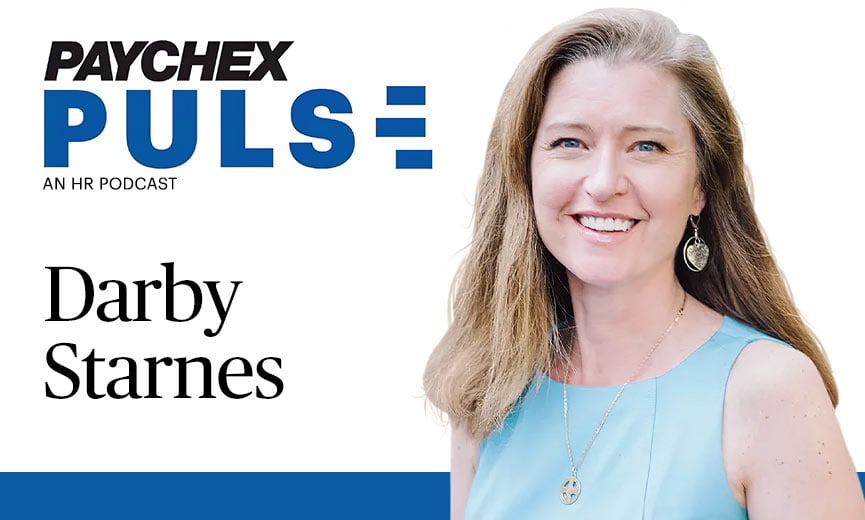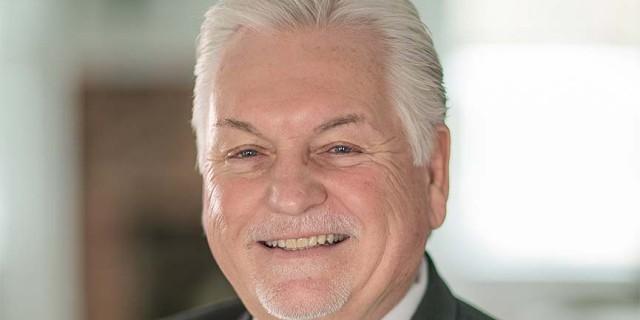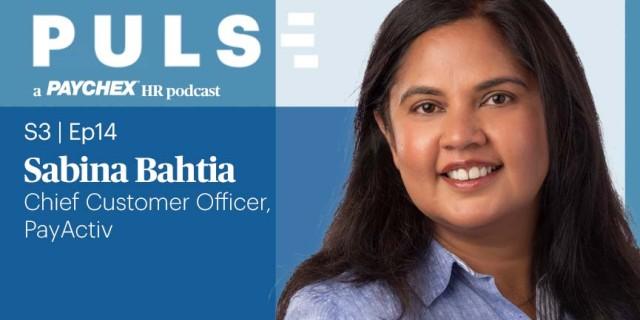Introducción a la Inteligencia Artificial en recursos humanos
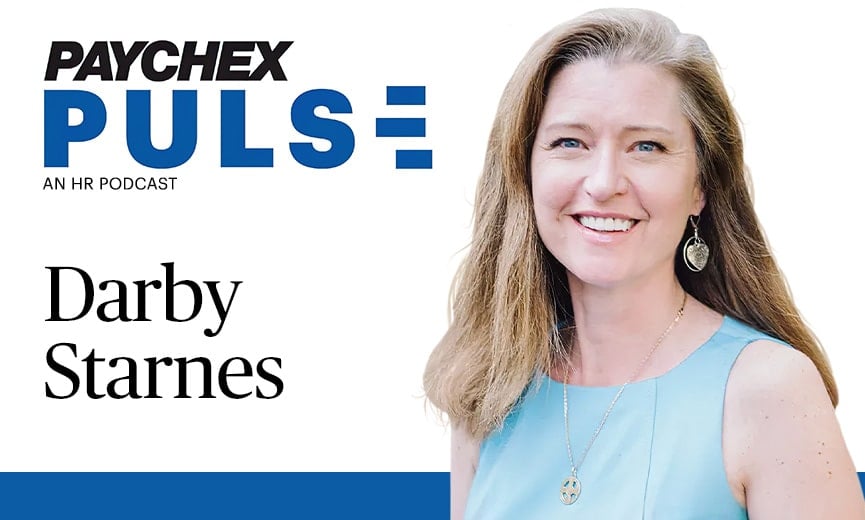
Podcast •

Vea
Resumen
Paychex Senior Manager of HR Services Darby Starnes joins this episode of the podcast to discuss the positive role AI can play in HR. She shares ways HR professionals can maximize and optimize its use to enhance their existing skills and strategies. For example, Darby envisions a shift in the HR profession towards a more people and culture-focused role, facilitated by AI handling administrative duties. This would enable HR professionals to focus more strategic, impactful work and less on mundane tasks. Darby also reminds listeners to understand the limitations of AI and use it wisely, always remembering the irreplaceable value of human experience.
Topics include:
00:00 – Welcome Darby Starnes
01:28 – AI is not replacing the HR professional
02:22 – How to get the most out of AI
03:30 – How to get started implementing AI
05:03 – What the future of HR might look like
05:49 – HR’s role in implementing AI across an organization
07:04 – The risks of AI
07:58 – Overview of how to use AI tools
09:12 – The important role of the HR professional
10:39 – Darby’s final advice on AI
11:14 – Wrap Up
Start preparing now for these 2024 HR technology trends.
Use this checklist to help you identify the areas where HR technology can benefit your business the most.
Paychex doesn’t just have the technology you need to help you implement AI for your HR needs, but the expert guidance that helps you optimize its benefits.
Ver transcripción
Darby Starnes (00:00)
So, HR is going to have much more of a business partner role than before, driven by data analytics, driven by insights to talent, and also driven by utilizing that AI to fuel, really, the art of what's possible.
Rob Parsons (00:22)
Welcome to season four of Paychex PULSE an HR Podcast where HR professionals can find great insights on today's top issues and be inspired to build and lead effective teams in a healthier workplace. Hi everyone. Welcome to the Paychex PULSE Podcast. I'm your host, Rob Parsons. Joining me today is Darby Starnes, a senior manager of HR services right here at Paychex. Darby is a passionate HR leader with more than 25 years of experience and dedication to helping others thrive. Currently she's responsible for leading our overall HR community of excellence strategy. Darby, welcome back to the podcast.
Darby Starnes (01:06)
Thank you for having me, Rob. It's great to be here.
Rob Parsons (01:09)
It's so great talking to you. You're so well versed on so many areas. Today, I want to talk AI, and specifically AI in HR, because we know it's impacting all areas of the business. But in our industry, specifically in HR, it's really become a big talking point, hasn't it?
Darby Starnes (01:28)
Absolutely, yes. You know, Rob, it's so interesting. You know, I want to just say first and foremost to the HR professionals out there who might be listening, it's okay that AI's here. It is not going to take over everything. We need to strike that balance, right? Just because AI's here doesn't mean we don't need the human component, but it's really up to us to maximize and optimize how AI is used to help us be better than we are today. So, just wanted to get out there that first and foremost, because I do get asked that, "Is gonna take over?" It is not going to take over.
Rob Parsons (02:11)
My background as a writer. Yes, that was very terrifying, and then you start digging in, you realize, well, no, we still need that guiding hand. We still need that ability to really make the most of the AI. So, let's start right at the beginning. As an HR professional, what should I be doing to stay on top of this, just overall as a category, as a new technology? What should I be looking at? What should I be thinking about if I want to be on top of this and really get the most out of AI?
Darby Starnes (02:39)
Read everything you can. Ask people what they're using it for. Learn as much as you can about AI and how it's being implemented so that you can really stay on top of what might work for you and your organization. But also think about that AI isn't perfect. This is a new technology. Just like anything else that's new, there's going be some exploration on this. So be open to listening and learning. We're going to have at least a whole other year of learning about what AI means, not just in our profession, but to the world.
Rob Parsons (03:17)
That's a really key point, is that this is not a one-and-done. This is going to be the new, we keep saying, "Oh, the new normal, the new reality," but we're really in it now, aren't we?
Darby Starnes (03:27)
We are.
Rob Parsons (03:30)
So, I like your point about being specific. Learning and knowing how can help my organization, but just based on what you've seen, I remember HR Tech last year, it was all about talent acquisition. That's where AI was really coming into play. With what you've seen, where do you think people should start? Where can they see some immediate impact with maybe minimal investment or minimal disruption?
Darby Starnes (03:57)
Yeah, I would say any kind of routine tasks that you have. So take the time to sit down and write down what are you doing, what is your team doing? Where do you spend your time? Are there any opportunities for those routine tasks to be taken over by AI? And you're right, we saw this in talent acquisition. We were looking at job descriptions, but also what about data-driven insights? How can you use AI to talk about how HR is making an impact in the organization? So, look at those opportunities as well. But I do want to say, you know, Harvard Business Review put out a study not too long ago, and they were talking about the talent acquisition piece for AI. And it did turn out that they found that 88% of qualified candidates were rejected. So don't forget you still need the human component to verify. So, trust, but verify.
Rob Parsons (04:59)
There's a blast from the past. So, as we look ahead, Darby, you know, that's our immediate, but as we look ahead head, say three years, five years, what's the biggest change going to be? How will the HR profession be different? How will our jobs be different in five years?
Darby Starnes (05:21)
I think it's going to be much more about people and culture instead of on administration or on tactical, mundane tasks. And not to use the word mundane like it's not valuable, but those everyday tasks that just really can take away from your calendar. It's going to allow HR professionals not just to be strategic, but to focus on people and culture and the impact to the organization.
Rob Parsons (05:49)
That's a great point and a nice segue to something else I wanted to talk about. We've had guests on the podcast talk about how HR can really impact the culture of a company by looking at, for instance, friction in just my daily work activities. Like really helping the entire company and not just the HR function. Do you see a role of HR as AI moves into other places in the organization as well, and how HR can and should be facilitating and maybe guiding and helping with that?
Darby Starnes (06:20)
Absolutely. Because that gets down to your talent strategy. How are other places in the organization really optimizing the talent that they have? What does that look like? And then that gets to a people strategy, as well as an overall organizational business goal of attainment. How does this all connect back to how the company is either growing or achieving those business goals? So, HR is going to have much more of a business partner role than before, driven by data analytics, driven by insights to talent and also driven by utilizing that AI to fuel, really, the art of what's possible.
Rob Parsons (07:04)
So, we've played a very, we're painting a rosy picture right now. There are risks. Maybe you can share, maybe some of what you've seen already, what you've read already, and maybe even what I should be looking out for going ahead, and make sure we're avoiding potential problems.
Darby Starnes (07:26)
Yeah, there definitely are some risks associated with AI, and one of those is thinking that it's an all-inclusive solution to all the problems out there, which it's just not. This is another tool for us to put in our tool belt, think about how we can utilize this to our desired outcomes. What is it that we're trying to do? How can we utilize this? How can we leverage it? But it's not a problem-solver. It is another lever to pull in our toolbox.
Rob Parsons (07:58)
Are there any specific AI tools you've been digging into and looking at? I know on the writing side I've been exploring some, and they've been very helpful when it comes to productivity, when it comes to automating some routine tasks. Is there anything that you've been looking at or you've been using in your daily work?
Darby Starnes (08:19)
You know, I've been looking at how to assess productivity of employees. What does that look like and how can we use AI? Also looking at, as we talked about with talent acquisition, onboarding, so past talent acquisition to onboarding employees. How can we use AI to help in that 30, 60, 90-day planning? And I think really what's important about that is the AI tools that are out there that you can use. Again, make sure that you understand that it's not perfect, and really learn about the tool that you're looking at. Make sure, because there are limitations to every tool that is out there right now. So make sure you understand what that is, and know how you should be using it, what it's used for, and why you would use it.
Rob Parsons (09:12)
So where does intuition and expertise and experience still come into play? How does wisdom still play in this era of data-driven decision-making and AI and machine learning? And we want everything to be cut and dry and black and white when we know for a fact, especially in the world of people management, that's not the way it works.
Darby Starnes (09:33)
And nothing can replace the human experience. I mean, we know that. You know, I remember in the region that I'm in, in manufacturing, I remember when robots came into GE and Ford and people got very nervous. Still had to have that human component. It just doesn't take the place of the human experience and how we think, because we actually know how people feel. We know what people are actually doing in their lives. There's a lot more outside the workplace that gets brought into work every day that AI cannot account for. There's no way that... Rob we were talking about your French Bulldogs earlier. There's no way AI can account for those nuances about you as a person. So, I see that, three to five years out, really being something that all HR professionals and really all organizations will be much more in tune with, is the people behind who is doing that work.
Rob Parsons (10:36)
That's super. That's a great thought. Do you have any last thoughts for our audience as we wrap this up?
Darby Starnes (10:42)
I would just remember, again, AI, it's a great tool that's out there, don't get me wrong. It's wonderful to explore this tool, but it is not the ultimate problem-solver. So please, you know, use it wisely, think about how you want to use it and make sure that you also are looking at AI as a lever to pull, and don't forget about that human component. It needs you to be the best it can be.
Rob Parsons (11:13)
Love it. Love it. Darby, thank you so much. This was great information.
Darby Starnes (11:17)
Thank you, Rob, for having me.
Rob Parsons (11:20)
Always a pleasure. And thank you to our listeners as well. Great topic. Exciting times, that's for sure. As always, please stay happy and healthy. Be sure to subscribe to this and our Paychex Thrive Business Podcast on your favorite podcast platform. Looking for more ways to keep your finger on the pulse of industry dynamics? Visit our resource center for the latest research thought leadership and news at paychex.com/worx. That's W-O-R-X. Thanks again for joining us. Until next time, please stay happy and healthy.
Announcer (11:56)
This podcast is property of Paychex Incorporated 2023. All rights reserved.

 Apple Podcast
Apple Podcast Spotify
Spotify iHeartRadio
iHeartRadio
